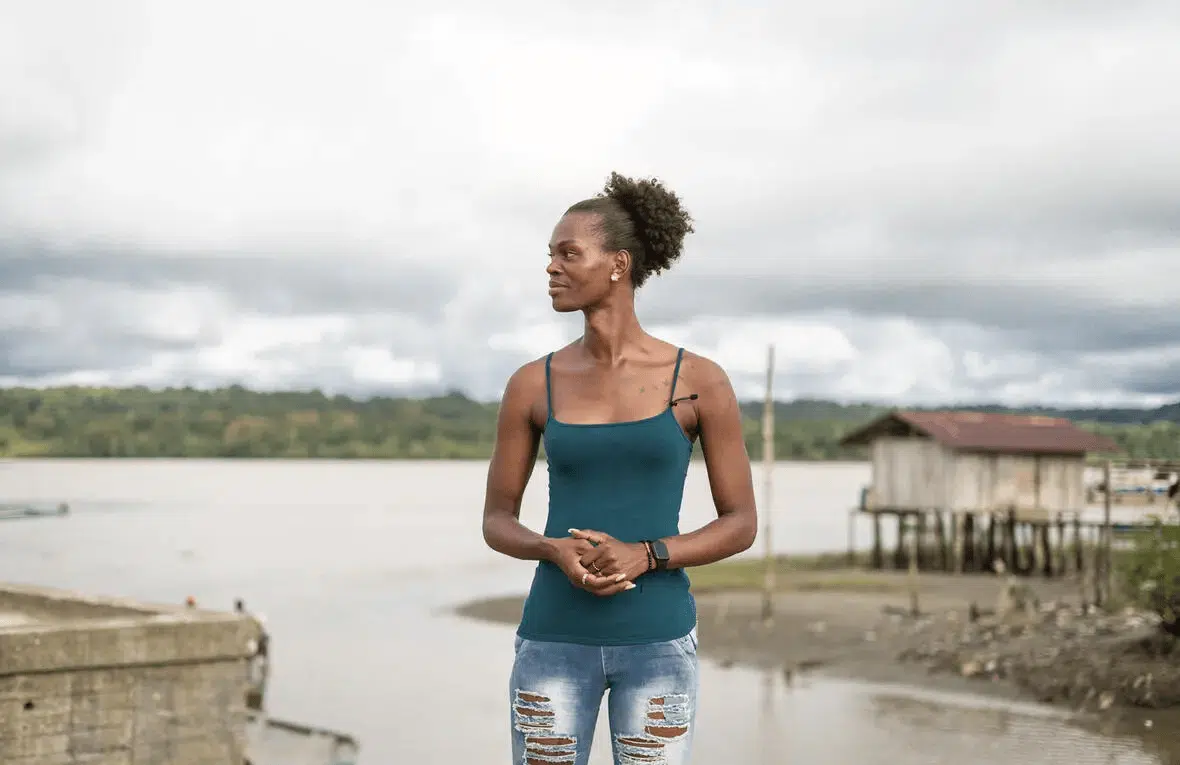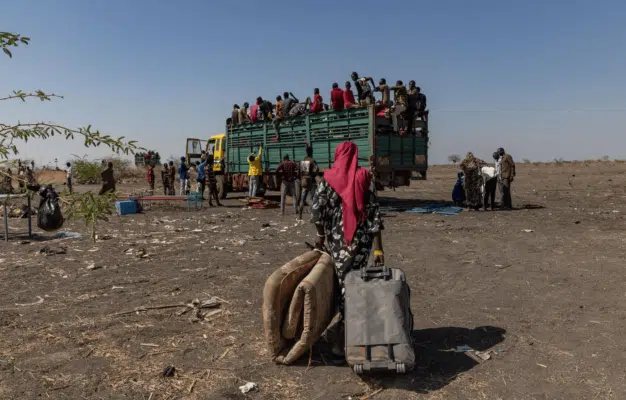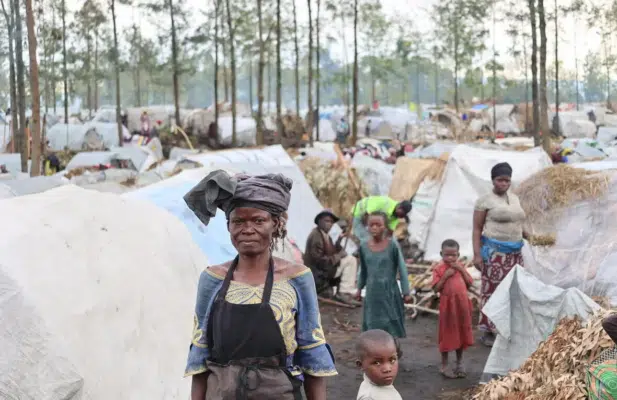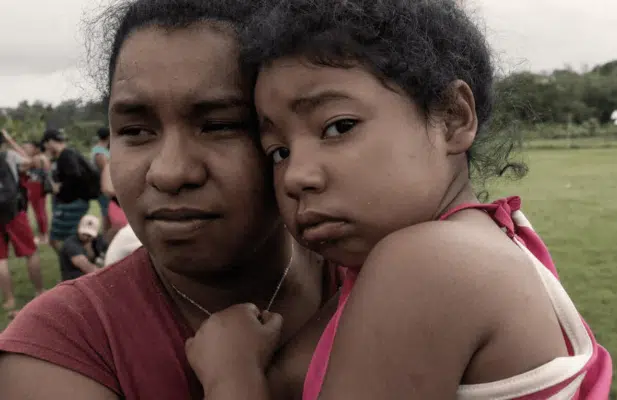
María Victoria Palacios has been working for the rights of internally displaced LGBTIQ+ people for the past nine years. © UNHCR/Catalina Betancur Sánchez
María Victoria works tirelessly to protect the rights of internally displaced LGBTIQ+ people in Chocó, Colombia.
As she walks through the city of Quibdó on the banks of the Atrato River in northwestern Colombia, María Victoria Palacios, a 36-year-old Afro-Colombian trans woman, receives greetings, smiles and good wishes from her neighbours. Her charisma and her role as an activist mean she is well known in the community.
María Victoria felt an inclination towards leadership from an early age. “At some point I was asked the question: are human rights defenders born or made? And my answer was: they are born.”
She grew up in Quibdó, in Colombia’s Chocó Department, one of the regions most affected by the country’s long-running internal armed conflict, where children are often recruited by illegal armed groups, or even confined to their homes and communities. Surrounded by violence, they are at continuous risk of internal displacement and highly vulnerable to depression, substance abuse and even suicide.
In this context, from the age of 15, María Victoria began to provide community-based psychological first aid to vulnerable adolescents who were going through difficult times, feeling lonely, anxious, and frustrated. Some of them were from the LGBTIQ+ community. Having grown up in a conservative family, unable to be who she really was, María Victoria understood their struggles. Through counselling she eventually gained the strength to tell her family about her sexual orientation, even though she knew they would reject her. As time passed, she discovered her life’s purpose: advocating for the rights of LGBTIQ+ people in Chocó.
Targeted for their sexual orientation
Colombia has the second largest population of internally displaced people worldwide, 6.8 million of whom still need assistance and solutions. Afro-Colombian and indigenous communities have been disproportionately affected by the armed conflict and are more likely to be displaced while LGBTIQ+ Afro-Colombian and indigenous peoples face even greater risks as they are frequently targeted by armed groups because of their sexual orientation. Often isolated within their own communities, they have only two options: to renounce their gender identity or leave their homes.
When they do, arriving in a new place does not always mean finding peace. “For a trans person, relocating often entails enduring recrimination, discrimination, or violence,” says María Victoria.
The purpose of Latidos Choco, the organization she founded in 2015, is to prevent this from happening and to ensure that the rights of the LGBTIQ+ community are guaranteed.
In less than 10 years, María Victoria has managed to ensure access to tertiary education for trans people in Quibdó and that, upon graduation, the name on their diploma reflects their identity. She has also become the trans community’s liaison with the municipality of Quibdó, so that displaced trans people are included in all public policies and have access to health services.
“I feel they need me. So here I am.”
All of this, she has achieved in an often-hostile context. “At some point in my life, I wanted to give up the process. But they call me and say, ‘María Victoria, I have a problem’, and I feel they need me. So here I am. That makes me happy.”
Creating safe spaces
For María Victoria, the people she advocates for are her family.
“María Victoria is like a mother to all of us,” agrees Sharok, an internally displaced Afro-Colombian trans woman. “In that role, she is on top of everything, not only counselling issues. She also creates those safe spaces where we can all come together, put aside worries and share as a community.”
Sharok was forced to flee her home in Boyacá, Chocó, in 2002, after a massacre that displaced more than 4,000 people. It wasn’t until 2018 that she reached out to María Victoria for help. Sharok was desperate for gender-reassignment surgery, but the health system refused to provide it. María Victoria supported her in a long but successful legal battle to access the surgery and the two now work hand-in-hand to run Latidos Chocó.
Together with UNHCR, the UN Refugee Agency, María Victoria has travelled to remote areas in the Chocó, where many internally displaced people live – most of them indigenous and Afro-Colombian – to raise awareness about the rights of LGBTIQ+ people. She has trained local authorities, including the police, to move towards a more inclusive society.
This year, UNHCR is working with Latidos Chocó to support its activism and advocacy activities and to strengthen its networks with other LGBTIQ+ organizations in the region.
Her next project? The creation of “La Casa Rosa” (The Pink House), a safe house for LGBTIQ+ people who are victims of gender-based violence and displacement, where they will go through a healing process with the support of an expert and interdisciplinary team.
María Victoria’s hope is that, someday, nobody will be forced to leave their home for being who they are. But until that day comes, she will continue working tirelessly to support them.
“We have to tell the State: ‘We are here, we are alive, it is happening to us’,” she says. “We need to be able to move freely, to be people who do not feel persecuted because of our sexual orientation and gender identity.”
Originally published by UNHCR on 17 May 2023.





